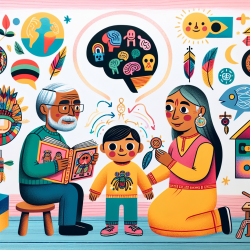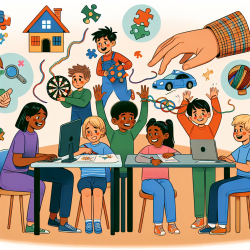The study titled "First Nations Elders and Parents Views on Supporting their Children's Language Development" offers invaluable insights for speech-language pathologists (S-LPs) aiming to provide culturally congruent services. The research, conducted through conversational interviews with 65 First Nations Elders, grandparents, and parents across four Canadian provinces, challenges stereotypes and emphasizes the importance of cultural safety in service provision.
The study reveals that First Nations caregivers highly value bilingualism, aiming for their children to be proficient in both English and their Indigenous language. This dual-language goal underscores the necessity for S-LPs to support both languages in their interventions. Furthermore, the research highlights the caregivers' preference for children to be socially aware of when to speak and when to listen, aligning with cultural practices of respect and observance.
To implement these findings, practitioners should:
- Engage with Families: Understand each family's values, beliefs, and goals regarding language development. Open-ended, conversational interviews can be a useful tool.
- Promote Bilingualism: Encourage the use of both English and the Indigenous language in early interventions, respecting the family's linguistic heritage.
- Ensure Cultural Safety: Provide services in a manner that respects and incorporates cultural practices and traditions. This may involve collaborating with community members and Elders.
- Educate and Train: Offer community-wide education and training to local caregivers and paraprofessionals to build local capacity for supporting language development.
First Nations caregivers are generally receptive to S-LP services, provided these services are delivered in ways that ensure cultural safety. Practitioners are encouraged to engage in further research to deepen their understanding and improve their service delivery.
To read the original research paper, please follow this link: First Nations Elders and Parents Views on Supporting their Children's Language Development / Points de vue d'anciens et de parents des Premières nations concernant le soutien visant le développement langagier de leurs enfants.










